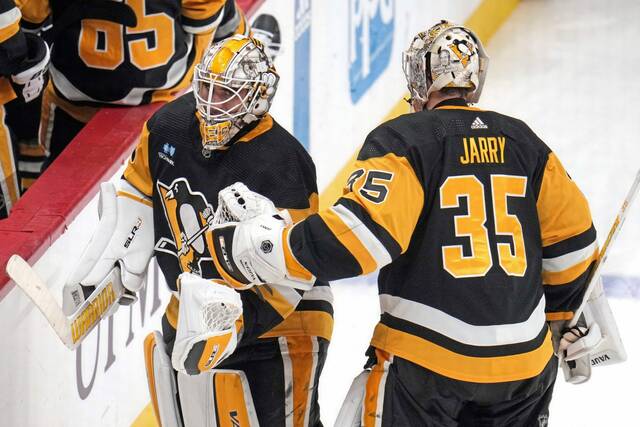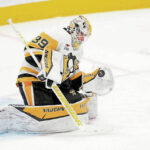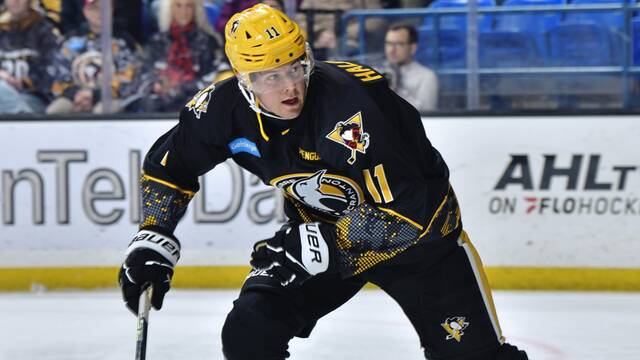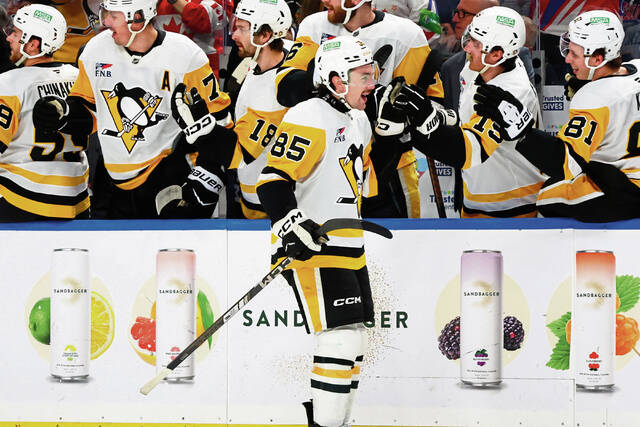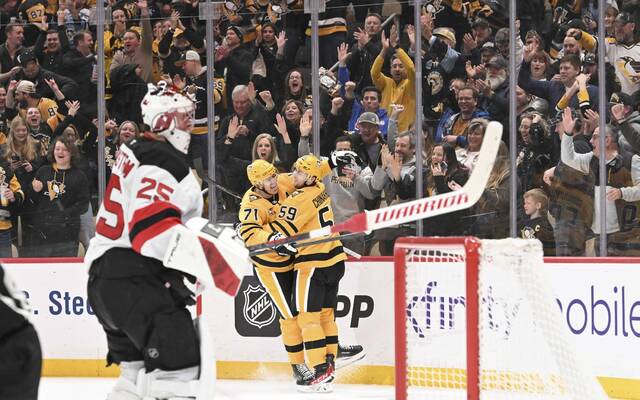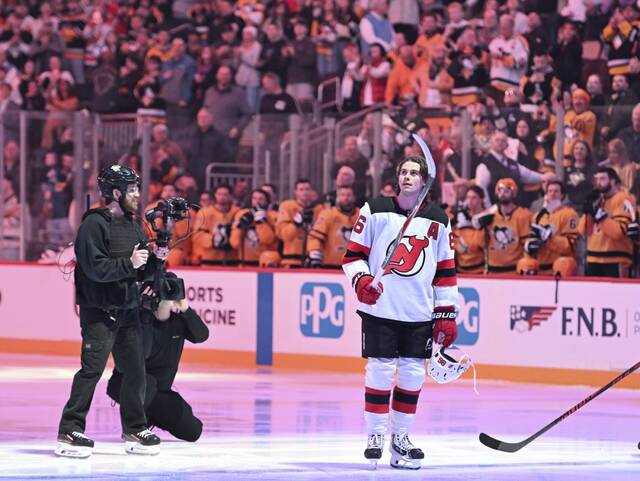Alex Nedeljkovic wasn’t just mad.
He was vulgar.
By late February, the Pittsburgh Penguins’ struggles had virtually morphed the team’s remaining games on the 2023-24 regular season schedule into cliched “must-wins.” And Feb. 20, Nedeljkovic and the Penguins failed to muster what was needed in a 5-4 overtime loss at home to the New York Islanders.
The winning goal saw Islanders defenseman Adam Pelech — taking advantage of the vast expanse available during three-on-three play — cruise into the offensive zone and wire a wrister from the high slot off the left post and past the blocker of the Penguins’ backup goaltender.
Roughly 10 minutes after that defeat, the typically affable Nedeljkovic was fuming.
At himself.
“We played good the whole night,” a glum Nedeljkovic said. “We deserve two points. We deserved to win in regulation there. I (expletive) the bed.”
Just over six weeks later, seemingly the only four-letter word that can be affixed to Nedeljkovic’s name comes through wondering how in the H-E-double-hockey-sticks has he steered the once woebegone Penguins into the territorial waters of a playoff berth.
Having essentially replaced struggling franchise goaltender Tristan Jarry as the team’s top option in net since March 24, Nedeljkovic has started the past seven games — two of which saw Jarry scratched with an undisclosed illness — and posted a 5-0-2 record, a 2.31 goals-against average and .923 save percentage.
On the morning Nedeljkovic took the helm, the Penguins were nine points behind the final wild-card position of the Eastern Conference with a 30-30-10 mark and 70 points.
Entering Friday, they are 35-30-11 with 81 points, only two short of the Philadelphia Flyers (36-29-11, 83 points) for third place in the Metropolitan Division and the New York Islanders (34-27-15, 83 points) for the final wild-card seed.
It’s been quite a series of events for a goaltender who was profane in explaining his own play not that long ago to now be entrusted by coaches with salvaging a season that had appeared all but lost.
“You just want to play, and you want to play well when you get a chance,” Nedeljkovic said after a 3-2 home win against the Columbus Blue Jackets on March 28. “I’m just trying to do what I did at the beginning of the year whenever I was in net. Just be myself, play my game and give the guys a chance to win. Nothing’s really changed from that aspect of things.
“If they keep calling my name, I’ll just keep doing the best I can, and if it’s back to (Jarry), it’s back to (Jarry) and I’ll be cheering him on and doing what I can to help him out as well.”
Much of this rebound by the Penguins with Nedeljkovic in net has happened because of what he has done with literal rebounds in the eyes of his teammates.
“He’s been getting a few games in a row here and really stepped up to the plate,” Penguins defenseman Marcus Pettersson said last week in Cranberry. “He’s been so solid in not leaving any rebounds. It’s been easy for us to play in front of him. You know sometimes (the opposition) has an advantage and you have to give up a shot, but you know you can defend the next play by taking sticks away because there’s not going to be a rebound. His rebound control has been awesome.”
As awesome as the adulation directed toward Nedeljkovic during this surge has been, he knows it is fleeting.
That’s the nature ofhow his position is scrutinized externally, regardless of the expertise of those offering unsolicited scrutiny.
“It just comes back to us (goaltenders) more than maybe the guys in front of us because we’re the last line of defense,” he said. “Every metric that we’re measured by, every number we’re measured by is how many times the puck goes in the net.
“To be pretty blunt, I think the people that understand the position — that understand it more — they see it how it is really. It’s a combination of everything that goes on in front of you. It’s not just what you do. The people that don’t necessarily understand the position or hardly at all, all they see is the puck going in the net or hitting you in the chest. When it gets down to it, that’s really the simplest way to explain it. It’s your job to stop the puck, but there is a lot more that goes into it.”
The fashion in which Nedeljkovic describes and views the position — sans profanity — offers a vivid picture of a man who is just as prepared to deal with the myopic critiques levied at him as a goaltender as he is an uphill battle for the playoffs.
“It’s their opinion. They’re entitled to it,” Nedeljkovic said. “It doesn’t mean they’re right. Doesn’t mean they’re wrong. But it doesn’t matter. What matters is the people in this room, the people on the staff that see it and go over it and make decisions based on what happens. Those are the people whose opinions matter. At the end of the day, we’re all professionals and I think we judge ourselves appropriately. Maybe a little bit more harsh than you need to be. But we know when it’s a bad game, we know when it’s a good game.
“There’s been games this year that we’ve lost or I’ve given up goals, and you’re like, ‘That was a really good game. I gave up two bad goals, but the rest of it — the other 59 minutes and 58 seconds — were unbelievable.’ It’s one of those positions where mentally you have to be really strong and take the bad with the good.”



